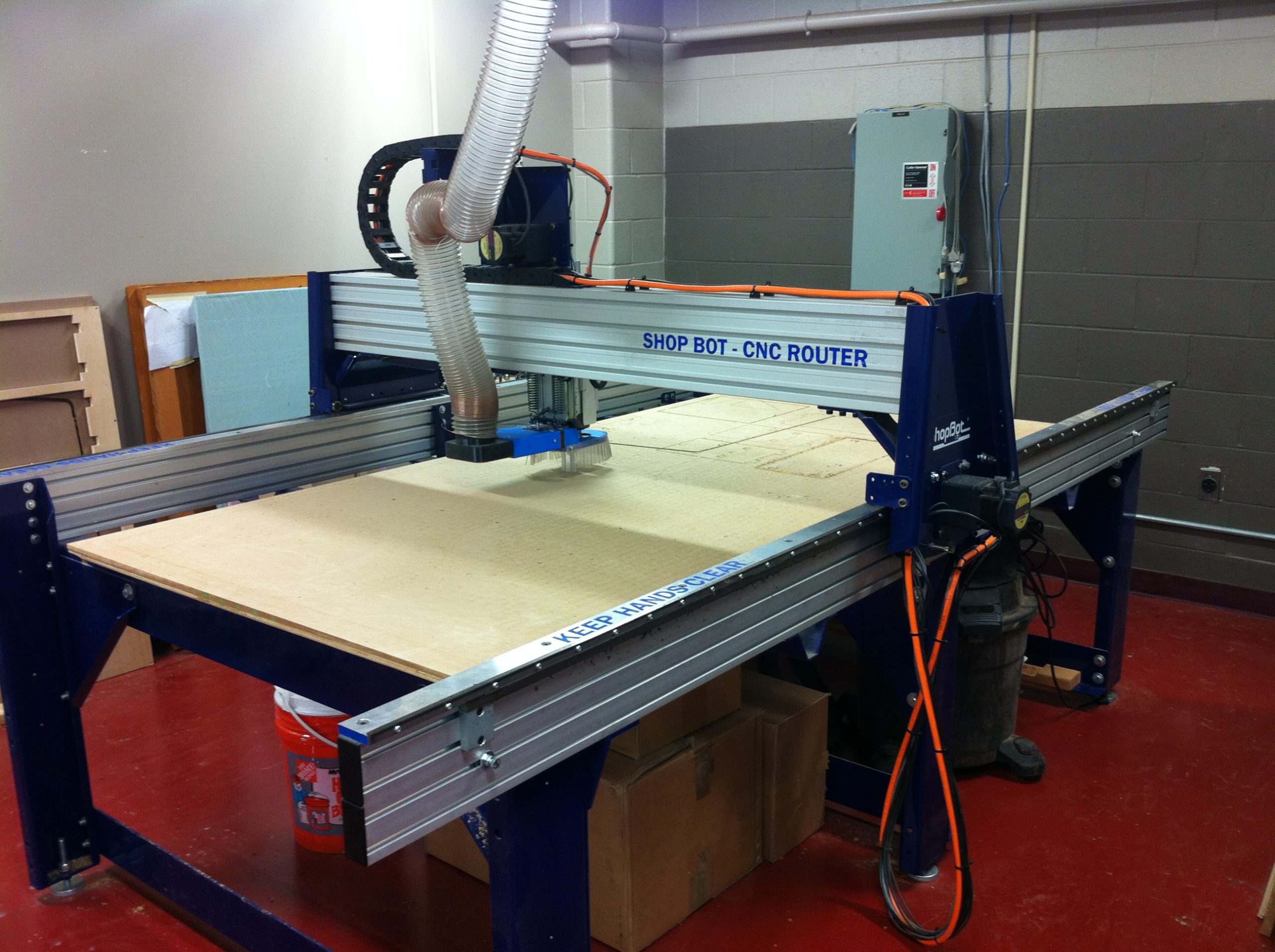“Analysts” claim that 3D printing is about to go “mainstream.” And while the $2,200 price tag on MakerBot‘s desktop 3D printer is an improvement in cost, it doesn’t look as if 3D printers will be as ubiquitous as iPhones anytime soon.

But for people in the Baltimore area interested in making their own 3D-printed goods, the MakerBot inside Fab Lab Baltimore at the Catonsville campus of the Community College of Baltimore County (CCBC) is open for anyone’s use.
CCBC’s two-year-old lab is “the only Fab Lab in the whole Mid-Atlantic region” that is operational right now, said Kelly Zona, manager of Fab Lab Baltimore since March 2012. There’s Fab Lab D.C., too, which doesn’t yet have “regular open hours,” said Zona, but does host workshops and events.
Both the Baltimore and D.C. labs are part of the international network of Fab Labs associated with MIT’s Center for Bits and Atoms, all of which must “share core capabilities” by having available similar machines and digital fabrication tools.
(Makerspaces in other parts of the region might quibble with the distinction, but it’s one the Fab Lab makes.)

At CCBC, makers will find:
- A ShopBot CNC router for cutting wood and metal
- A vinyl cutter and a laser cutter
- A 3D scanner
- Two 3D printers, including one MakerBot, with two more 3D printers from Athena on the way, Zona said.
- 10 computers in order to learn the software needed to take advantage of the equipment

Makers generally bring their own materials, cardboard and such, said Kenneth Burch, director of the TIME Center, where Fab Lab Baltimore is located on CCBC’s campus, although there are materials available at the lab for a cost.
“We’re here as the community’s resource,” said Zona, who mentioned that, for awhile, people had thought they needed to be taking classes at CCBC in order to use the lab.
To dispel the myth, Fab Lab Baltimore at CCBC is holding an “Innovation Fest” tomorrow from 10 a.m. to noon. It’s more of an open house than anything else — a chance for people to meet “some of our more prolific makers,” Zona said, and see what goes on inside the lab.

There is, however, one class people must take before gaining access to use the lab: a three-hour introductory course that surveys each of the machines and their functions. Zona said, possibly starting as early as next fall, the one big introductory course will be broken down into smaller, more in-depth classes focused solely on 3D printing, or using the ShopBot.
Watch a video about Fab Lab Baltimore:
http://youtu.be/Py16lW4TPJ0







